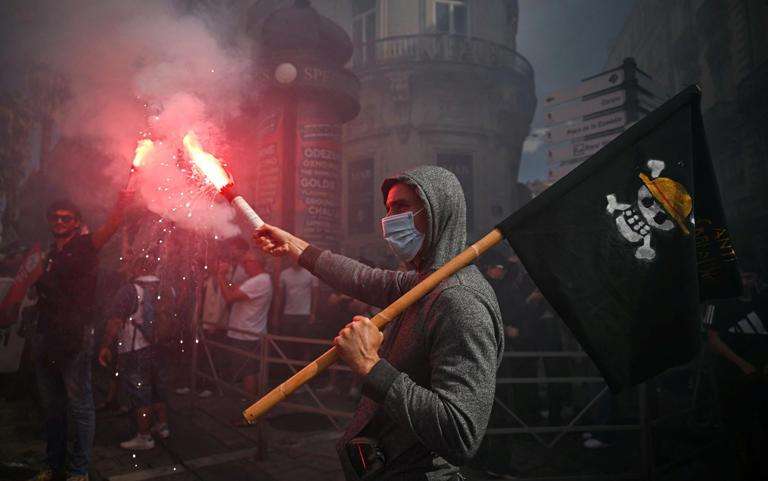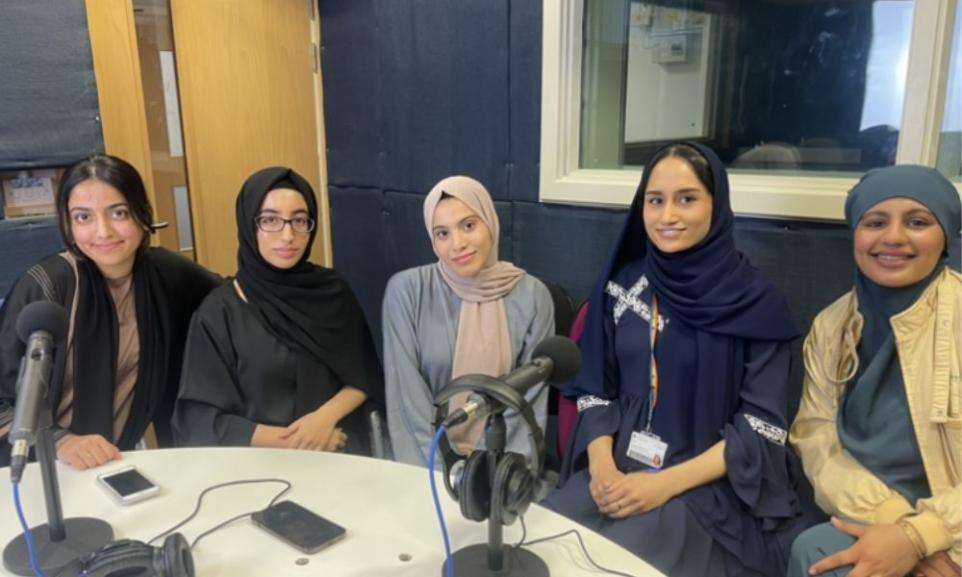THREE paramedic students are on a mission to encourage more British South Asian women into the profession. Aysha Ali, Alishba Arshad and Hansa Zaman are in their second year, studying BSc (Hons) Paramedic Science at the University of Bradford, which is now ranked 2nd in the UK by the Complete University Guide 2024. They have been delivering talks about why women, and particularly ethnic minority women, should consider following in their footsteps. Aysha, 20, from Bradford, pictured below, said: "In our cohort, there are just three South Asian women. Us! Some years, there has only been one.
There are more Asian men in the field now but they are also still in the minority. "It’s great to work on placement with ambulance crews in Bradford because it’s a diverse city and that is reflected in our paramedics. But we’ve been on placement in other parts of West Yorkshire and there is a really obvious lack of diversity. "It’s not about feeling alone because everyone makes you feel welcome, it’s more about having someone there who understands your religion or background or culture, someone who can relate to your experience." Latest Government figures for the NHS show the vast majority of ambulance staff are white - 95.8 per cent. By contrast, just 1.4 per cent are Asian. Across the NHS as a whole, 68.7 per cent of the professionally qualified clinical staff is white, while 15.9 per cent is Asian.
According to the Health and Care Professions Council Diversity Data Report 2021, paramedics had the lowest proportion of female registrants (40%). Alishba, also 20, from Manchester, said: "Speaking as an Asian woman, I think paramedicine is a career that many Asian families don’t consider or haven’t considered, traditionally, particularly for their daughters. "Daughters are very protected and being a paramedic involves working night shifts, going into places like pubs and potentially risky situations. "It’s not a nine-to-five. For a woman to become a paramedic, it will mean she isn’t going to always be at home to look after the children or make dinner." All three have had huge support from their families and have been treated with respect while working on placements. They all agree having a more diverse workforce is a benefit to patients. Hansa said: "For a patient, it’s often reassuring to be treated by someone who is from the same background as you, particularly if that person can speak the same language as you."
Promoting diversity The trio, along with their clinical teacher in paramedic science Mariya Ijaz, spoke about the need for more South Asian women in paramedicine on the University of Bradford’s podcast, RamAir. Mariya has also been delivering talks to colleges and schools to promote paramedicine and encouraging members from the Black, Asian and Ethnic Minority (BAME) community to apply for the course. To promote diversity and inclusion, the programme is also part of a summer school at the university and the team is expanding its presence at careers fairs at local schools.
Mariya said: "I, myself, studied on the paramedic science course at the University of Bradford and have gained many opportunities from this. One of the main reasons I applied to be a clinical teacher was to help promote more diversity on the course and to show not only the South Asian community but all BAME members that progression is possible and this is a career that we all should be proud of." Aysha has delivered a talk to sixth form pupils at her former secondary school, Feversham Academy, Bradford. She said: "I explained what the paramedic field is about and gave them a demonstration of CPR. Everyone was really intrigued. Some of them commented that it’s not really a job many ethnic minorities go into.
"Some people don’t really know what being a paramedic entails, they think it’s just driving ambulances. Two female pupils who were at my talk then came for interviews here, to study Paramedic Science." Alishba has also been back to speak to pupils at her former school, Parrs Wood High School, Manchester, and has been immortalised on a board showing what pupils have gone on to achieve.
Pictured below, she said: "I was the first person from my high school to go into paramedic science so my picture is up on a board of other firsts." The women have just completed their exams ahead of a paid sandwich year with the ambulance service. Aysha said: "I always wanted a job that involved caring for people and I didn’t want to be in one place, treating patients with similar conditions every day. With this job, I’ll never know where I’m going to be going or what I’m going to face, and I thrive on that. "You could be seeing a patient with a urinary tract infection (UTI) then going to someone who has had a cardiac arrest. Every day, every call out, is different. "It’s not just about saving lives, sometimes it’s the little things that matter, like just being there to provide comfort to someone in their most vulnerable moment."


_7.jpg)

_8.jpg)



.svg)

